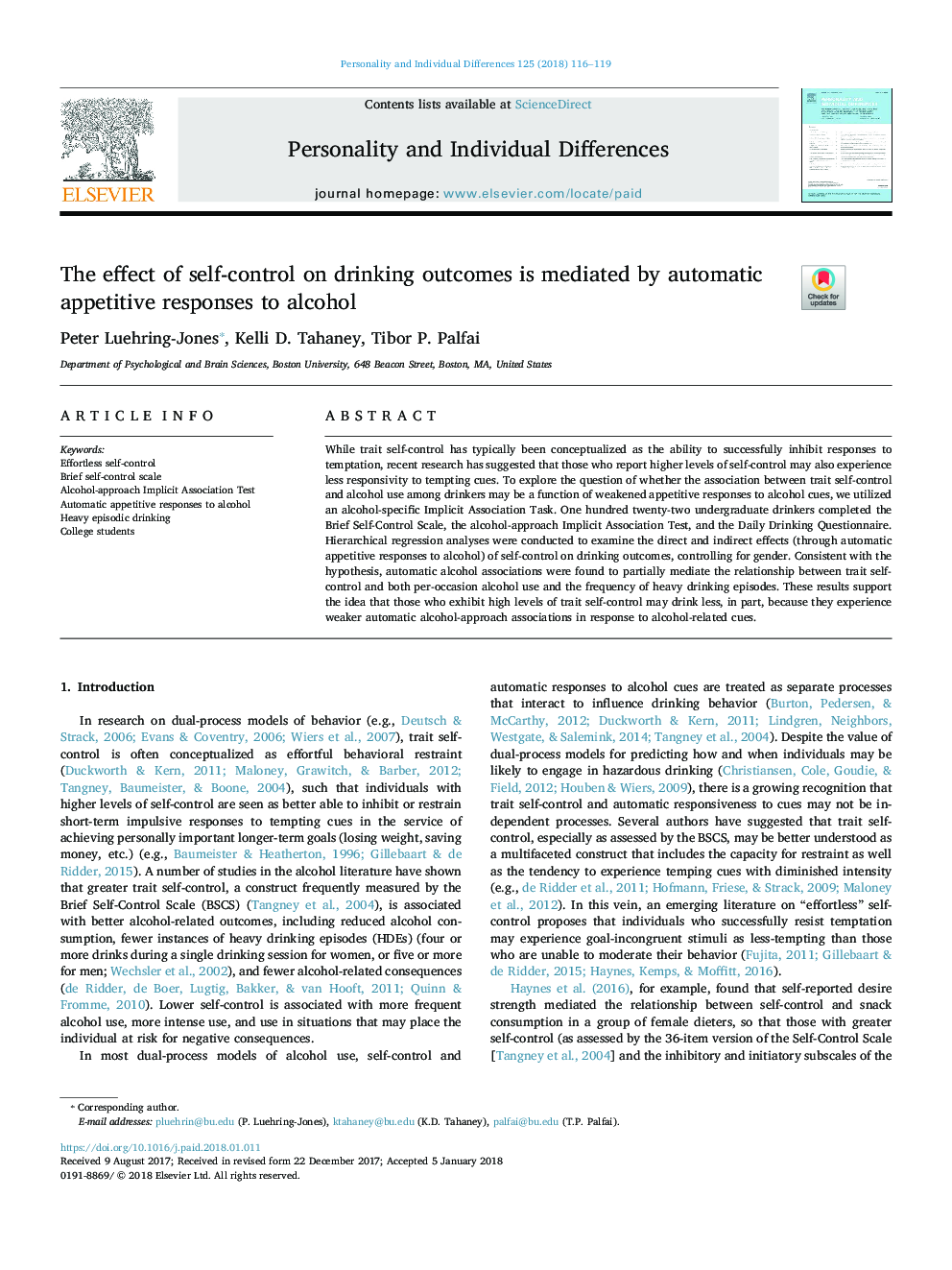| Article ID | Journal | Published Year | Pages | File Type |
|---|---|---|---|---|
| 7249023 | Personality and Individual Differences | 2018 | 4 Pages |
Abstract
While trait self-control has typically been conceptualized as the ability to successfully inhibit responses to temptation, recent research has suggested that those who report higher levels of self-control may also experience less responsivity to tempting cues. To explore the question of whether the association between trait self-control and alcohol use among drinkers may be a function of weakened appetitive responses to alcohol cues, we utilized an alcohol-specific Implicit Association Task. One hundred twenty-two undergraduate drinkers completed the Brief Self-Control Scale, the alcohol-approach Implicit Association Test, and the Daily Drinking Questionnaire. Hierarchical regression analyses were conducted to examine the direct and indirect effects (through automatic appetitive responses to alcohol) of self-control on drinking outcomes, controlling for gender. Consistent with the hypothesis, automatic alcohol associations were found to partially mediate the relationship between trait self-control and both per-occasion alcohol use and the frequency of heavy drinking episodes. These results support the idea that those who exhibit high levels of trait self-control may drink less, in part, because they experience weaker automatic alcohol-approach associations in response to alcohol-related cues.
Related Topics
Life Sciences
Neuroscience
Behavioral Neuroscience
Authors
Peter Luehring-Jones, Kelli D. Tahaney, Tibor P. Palfai,
